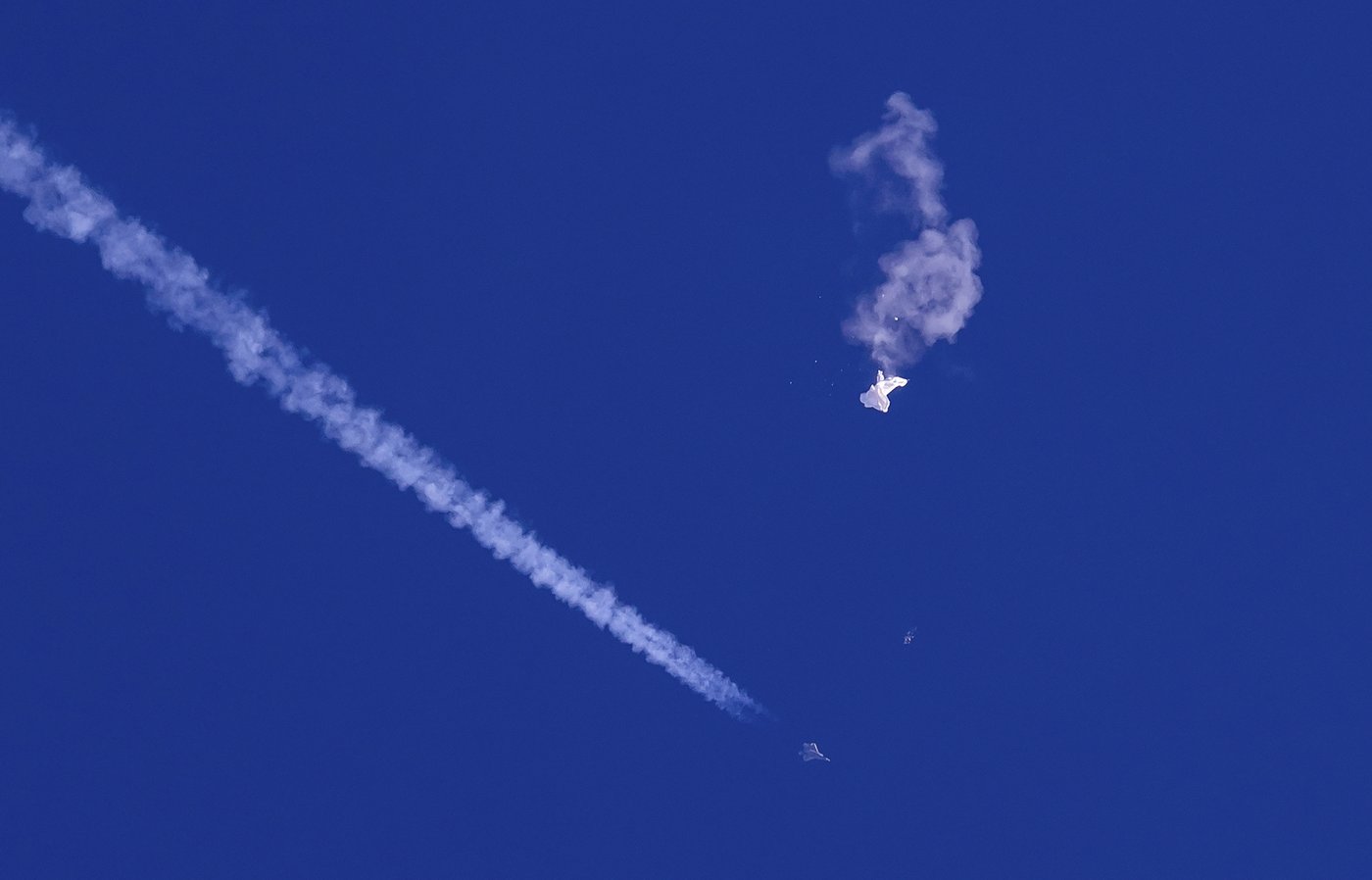Some politicians and researchers say four flying objects that were discovered, tracked and shot down over U.S. and Canadian airspace in recent weeks highlight the need to improve security in Canada’s Arctic.
“It should be a wake-up call for Canadians in general of the woefully inadequate capacity we have in the North in terms of our military capacity,” said Opposition Yukon Party Leader Currie Dixon.
“The fact that we rely on the American military to a huge degree is simply a fact of life in the North and that’s something I don’t think a lot of other Canadians would find acceptable.”
A high-altitude surveillance balloon of Chinese origin was taken down by an American fighter jet off the coast of South Carolina on Feb. 4 after it flew over Alaska and Canada. China has claimed it was a “civilian airship” conducting meteorological research.
The following week, three unidentified high-altitude airborne objects were subsequently shot down over Alaska, Yukon and Lake Huron in Michigan. Little information has been released about their capabilities, purpose or origins. Recovery efforts are ongoing.
U.S. and Canadian officials have said they don’t believe the objects posed a direct threat to people on the ground, but could have interfered with commercial air traffic.
Dixon said major players other than Canada have increased their military presence in the Arctic, while China has economic interests in the region.
He said Canada also needs to improve its terrestrial, maritime and aerospace security capacity in the North, which should include establishing a permanent military base, a deep water port in the western Arctic and improving ice breaking capacity.
Yukon Premier Ranj Pillai said that last week he discussed Arctic security issues, including modernizing early warning detection, with other premiers, Defence Department officials and Prime Minister Justin Trudeau. Investing in communities is also important for Arctic security, he said, pointing to ongoing work in Yukon to construct a fibre optic line and improvements to roadways and the airport in Whitehorse.
“I think it’s time for us to, again as a country, think past election cycles and think about bigger plans so that our country has the appropriate infrastructure in place,” he said.
Pierre Leblanc, a retired colonel and a former commander of Canadian Forces Northern Area, now Joint Task Force North, said successive federal governments have not sufficiently invested in Canada’s defence.
He said has not met the NATO defence spending target of a minimum two per cent of its gross domestic product.
“Canada is recognized as a freeloader on the defence side,” he said.
“There’s an emergency to reverse the trend. We need to invest in the security of Canada.”
Leblanc said there has been increased interest in the Arctic as shipping routes have opened due to melting sea ice and the region has valuable resources, including oil, gas and rare earth metals. He’s also concerned about increasing aggression from China and Russia.
Arctic security has improved, he said, with the deployment of the RADARSAT Constellation — a fleet of Earth observation satellites — and Arctic offshore patrol ships. However, there is no deep sea port in the High Arctic, Canada’s coast guard vessels and naval fleet are aging. A November auditor general report found Ottawa had not addressed long-standing gaps with surveillance of Arctic waters.
“The Arctic is our backyard, if you wish. It’s a beautiful fragile environment and we have a duty to be the stewards of that area,” he said. “We need to understand what’s going on.”
Andrea Charron, director of the Centre for Defence and Security Studies and an associate professor in political studies at the University of Manitoba, said response to the flying objects shows Norad, the North American Aerospace Defence Command, is working but that North America is vulnerable.
“The silver lining to all of this is that Canadians, Americans are waking up to the fact that they have this Norad command,” she said. “I think they’re starting to realize it’s actually the first line of defence for North America.”
Charron said Norad needs to be modernized by updating the North Warning System. There are other gaps in Arctic security beyond defence, such as the lack of housing and reliable internet, and limited transportation infrastructure, she added.
“The Arctic football tends to get kicked down the field often because we’re talking about quite eye-watering amounts of funding,” she said.
Adam Lajeunesse, Irving Shipbuilding Chair in Canadian Arctic Marine Security Policy and assistant professor at St. Francis Xavier University, said the Canadian Arctic is not directly at risk, but threats could travel through the region to strategic targets elsewhere in North America.
Greater safety and security concerns in the region, he said, include illegal fishing, trespassing and environmental damage, which have been the focus of the Canadian Armed Forces. He said that’s a more appropriate allocation of resources than defence spending.
The Canadian government has made several funding commitments to improve security in the North. In June, the national defence minister announced $4.9 billion over six years to modernize Norad and long-term plans to invest $38.6 billion over 20 years.
This report by The Canadian Press was first published Feb. 16, 2023.
___
This story was produced with the financial assistance of the Meta and Canadian Press News Fellowship.
Related
























